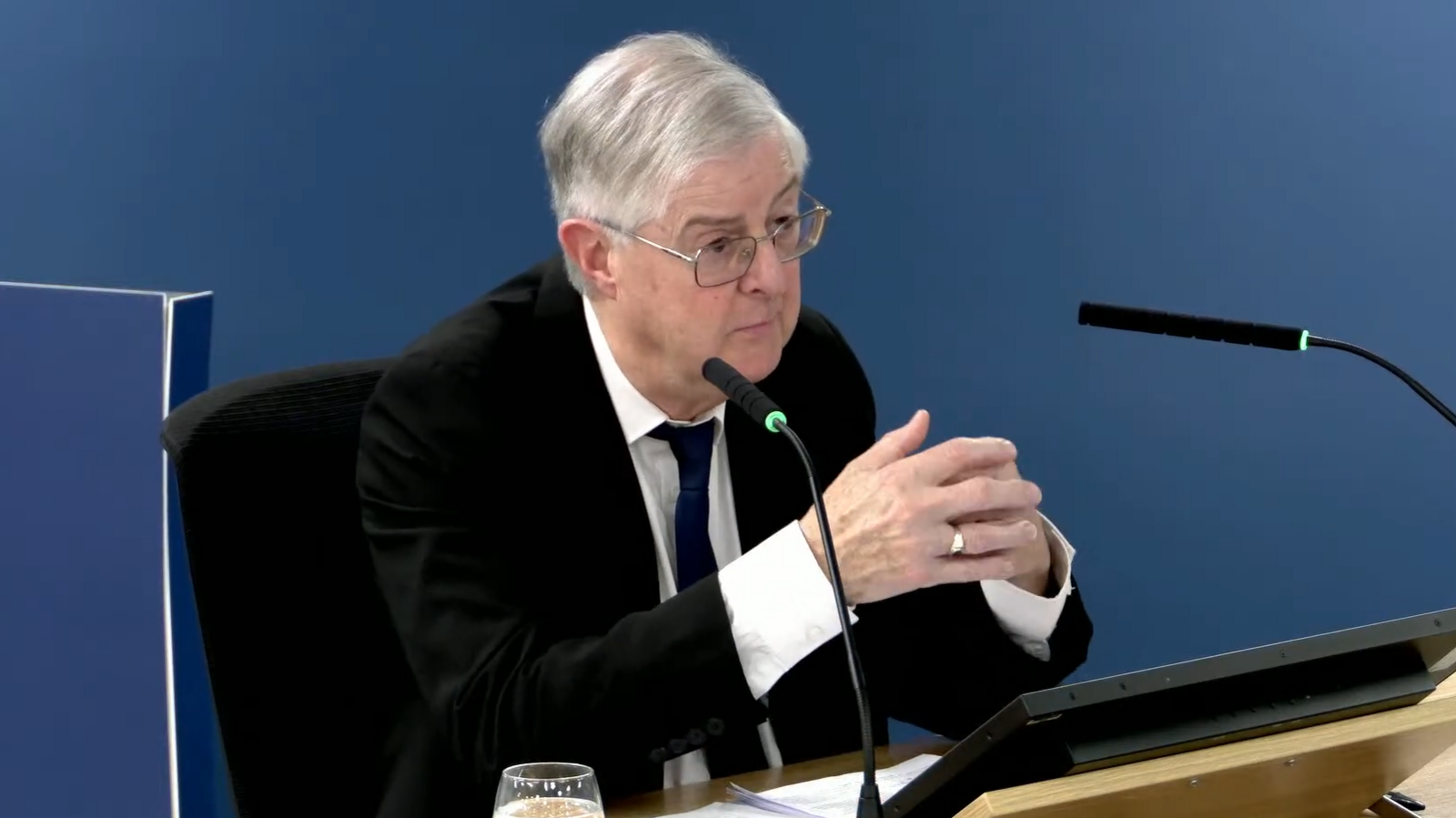Drakeford: We did not prepare enough to shut schools during Covid

Mark Drakeford was first minister at the time of the pandemic.
- Published
Preparations for closing schools in Wales at the start of the coronavirus pandemic were inadequate, the country's former first minister Mark Drakeford has told the UK Covid-19 Inquiry.
Drakeford, who led the Welsh government during the pandemic, said the focus of Welsh ministers had been on keeping schools open before the announcement that they would close from 20 March 2020.
The inquiry is currently looking at the impact on children and young people.
Boris Johnson, the former prime minister, told the inquiry on Tuesday that children had paid a "huge price" to protect others during the Covid pandemic.
Children paid 'huge price' in Covid pandemic, Johnson tells inquiry
- Published21 October
Drakeford, who is now the Welsh government's finance secretary, told the hearing on Wednesday that closing schools had been mentioned as a "possibility" as the threat of the virus grew towards the end of February.
However it was not seen as a "probability" until 48 hours before the announcement on 18 March that they would close indefinitely for most pupils.
He said: "I accept that the preparation wasn't adequate for what we ended up having to do."
Drakeford added: "We were preparing for schools to stay open and to try to do everything we could to help them to stay open and to do so safely, and to do so because until 16 March that is the advice we were getting.
"So we didn't prepare adequately for the course of action we didn't expect to follow, because we were doing our best to prepare adequately for the course of action we did expect to follow."
While most schools closed, hubs were open for vulnerable children and key workers.
But Drakeford said the number of children who used them "were never as good as we would have liked them to have been", and that "fear" of the virus was probably to blame.
Trade unions had been opposed to amending summer holiday dates in 2020 to allow pupils more time in schools in the summer months.
Drakeford said that as a "committed trade-unionist" he acknowledged changes had been proposed at short notice, which had an impact on staff contracts.
But he agreed with a previous statement that relationships with unions were sometime difficult, and "the interests of children as opposed to adults were not always given the weight they deserved".
He said issues raised by the inquiry led him to believe that "extending the school day and reforming the school year are things we ought to do while we have a different opportunity to do so".
"Had we had a different approach before the pandemic, I think some of the contractual difficulties we faced during the pandemic would've been easier to solve," he said.
When he was first minister, Drakeford took steps to amend the school year, potentially shortening the summer break - a policy later shelved by his successor.
How did the pandemic affect schools in Wales?
In line with other UK nations, Wales' education minister at the time, Kirsty Williams, announced on 18 March 2020 that schools in Wales would close for all pupils except for vulnerable children and children of key workers two days later on 20 March at the latest.
From 29 June pupils returned for a limited number of days, before a fuller return in September 2020.
When schools were closed in March 2020, it was also announced that summer 2020 exams were being cancelled.
An algorithm used to determine grades for those exams resulted in chaos and the results had to be abandoned in favour of grades decided by teachers.
The following months were marked by further disruption and tight restrictions, and schools moved to online learning in December and stayed closed until the 2021 February half term.
After that, pupils returned gradually with all secondary pupils only returning full time after the Easter break in April 2021.
The impact of the period continues to be seen in schools, with attendance still significantly lower than before the pandemic and government data suggesting that literacy and numeracy standards have yet to recover.